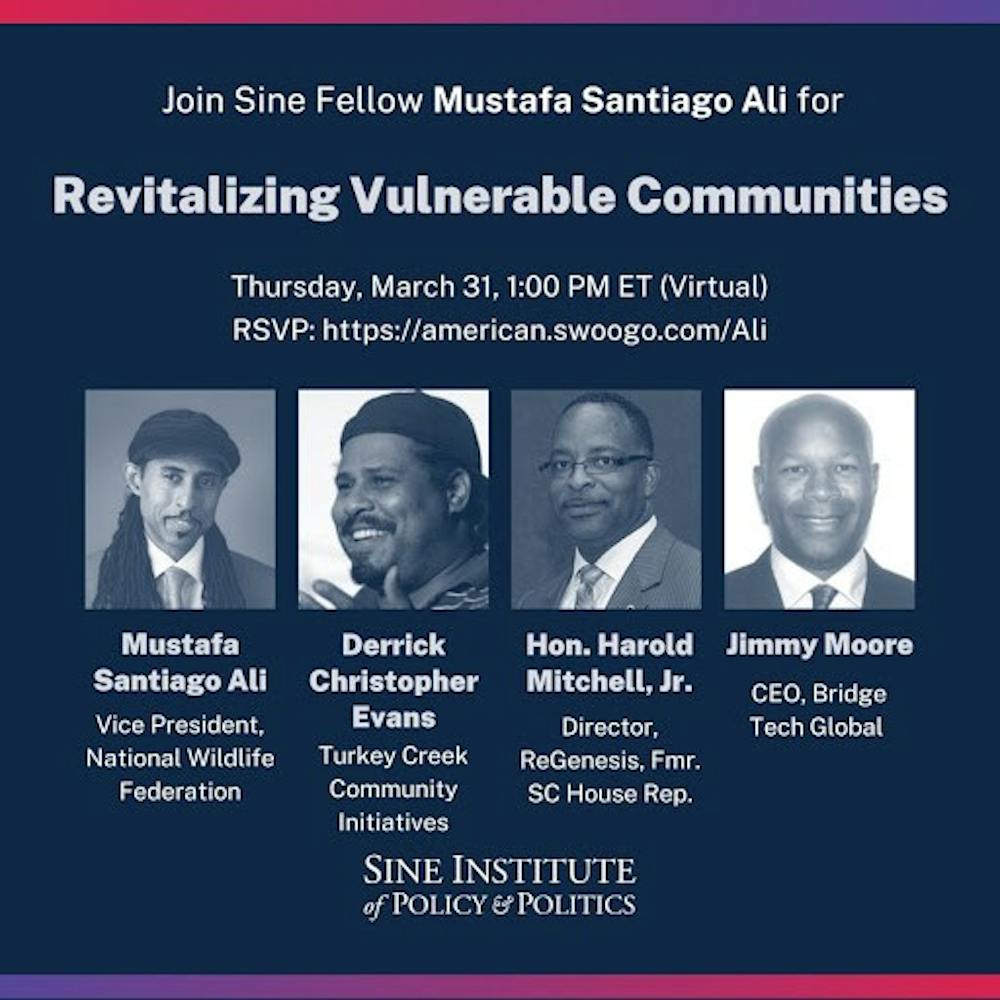AU Sine Institute Fellow Mustafa Santiago Ali brought two guest lecturers to his webinar series to encourage students to use education to develop environmental and economic solutions within underprivileged communities. In this virtual webinar, Revitalizing Vulnerable Communities - Moving Our Most Vulnerable Communities From Surviving to Thriving, guest lecturers Jimmy Moore and Derrick Evans discussed their groundwork within underprivileged communities.
Moore is the CEO of The Bridge Tech, a program that funds STEM based K-12 education in South Carolina. Moore believes STEM education is the key to closing the environmental wealth gap within underprivileged communities. Although Bridge Tech focuses on engineering, students take on projects that focus on environmental based solutions.
“It’s always about education. Education is the foundation of wealth,” Moore said.
Evans sees vulnerability within communities as an opportunity for creating solutions. He believes the only path to revitalization includes taking these opportunities and creating a holistic approach.
“It’s not just your short or long list of challenges, but also the potential opportunities that those challenges alone may present,” said Evans.
Evans has done work on the Turkey Creek Initiative, whichk is a predominantly Black community located in Mississippi. The initiative is a project that worked to protect the community from environmental destruction in the aftermath of Hurricane Katrina and the Deepwater Horizon oil spill in 2010.
One of the project’s goals is to prevent corporations and the city of Gulfport from developing over this community. The initiative focuses on building authentic relationships with community allies while using manageable and cost-effective methods.
“Like any human relationship, it’s about the people conducting the relationship, not the logo, not the institutional identity, that adds or diminishes to the value of the relationship,” Evans said.
Evans' work in Turkey Creek was chronicled in the documentary “Come Hell or High Water: The Battle for Turkey Creek.” What happened in Turkey Creek is common in many communities of color, according to Evans.
Both Moore and Evans agreed, to get involved in environmental justice, a background in environmental science is not required.
“A lot of organizations are missing policy, people who understand it are necessary,” Moore said. He hopes a focus on policy can lead to more collaboration within organizations, which is another tool underprivileged communities need.
They also recommended students participate in community-based research to give back to the community. Additionally, they encouraged students to volunteer with grassroots organizations.
“So many of the students, you know, rightly think that they have to have an internship at EPA, or an internship at the State Department, or a number of other places all have value. But we should also be having those internships and fellowships that are living inside of these amazing projects that are going on on the ground,” Ali said.
Moore is optimistic about the future of environmental community revitalization. He called the youth “our most valuable resources” and plans to continue to work with students.
“I would love to be 30 years younger right now. It's time to be a part of the solution,” Moore said.





